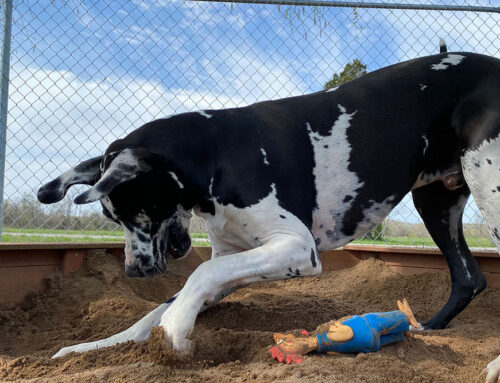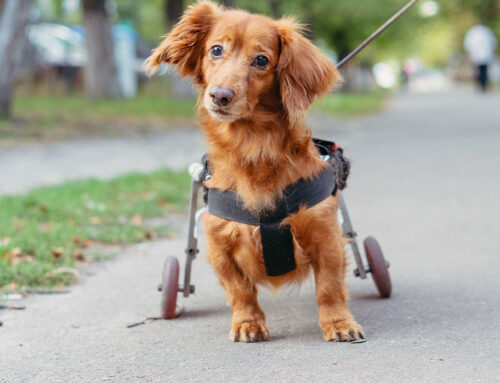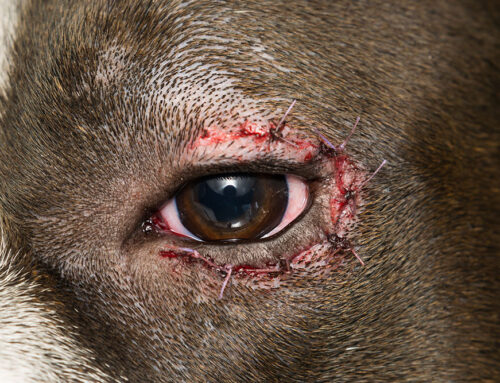Dental health is an essential aspect of pets’ overall well-being. Responsible pet owners always look for ways to improve their four-legged friends’ health and happiness, and one of the best ways is proper dental care, because, unfortunately, too many dogs and cats suffer from dental issues that impact the quality of their lives. Wales Animal Clinic explains the importance of dental care and practices you can implement to keep your pet’s pet oral health in good shape.
Understand the consequences of pet dental health
Dental problems are all too common in pets—an estimated 80% to 90% of dogs and cats older than age 3 have some form of dental disease. These problems, left untreated, can lead to pain, tooth decay, and possible systemic health issues and organ damage. Your pet’s smelly breath may be the first sign you notice, but that is only the beginning of your pet’s problems.
Periodontal disease (i.e., dental disease) begins with the accumulation of oral bacteria that first form plaque on the teeth that hardens into tartar. If the plaque and tartar are not removed, the harmful bacteria accumulate, causing inflammation, tooth and bone decay, ulcers and abscesses, and pain, and can eventually enter the bloodstream and damage the heart, kidneys, and liver. Periodontitis progresses through four stages, from mild to severe.
Unfortunately, dental disease often goes unchecked, because many pet owners see the first sign (i.e., their pet’s smelly breath) as normal, and no other signs are visible until the disease has advanced to the late stages. Therefore, we cannot emphasize enough that dental health matters.
Recognize pet dental disease signs
Most pets are adept at hiding their health problems, including dental disease. This is an instinctual throwback to their days in the wild, when a liability made them vulnerable to predators. Watch closely for the following clues to your pet’s poor dental health:
- Bad breath (i.e., halitosis)
- Red, inflamed gums
- Swollen gums
- Difficulty eating
- Pawing at the mouth
- Favoring one side of the mouth while chewing
- Mobile or loose teeth
- Bleeding at gumline
Contact our veterinary team should you see any of these changes, so we can evaluate your pet’s dental health and formulate a treatment plan.
Establish a routine oral care regimen for your pet
The good news—dental disease in pets is preventable. Prevention requires a combination of daily at-home dental care and regular (i.e., yearly or twice yearly, depending on the pet’s age) veterinary teeth cleanings.
Daily at-home dental care includes:
- Brush — Brush your pet’s teeth daily using a pet-safe toothbrush and toothpaste. We can help with pointers on pet toothbrushing.
- Reward — Offer your pet dental-friendly chew toys and treats when they cooperate.
- Diet — A balanced, quality diet will help maintain healthy teeth and gums. Foods specially formulated for dental health are available.
- Schedule — Ensure you schedule regular wellness exams, including dental assessments.
When choosing dental products, look for the Veterinary Oral Health Council’s (VOHC) seal of approval. The VOHC website is a great resource for finding high quality dental products and its seal certifies that the product has been proven effective.
Veterinary cleanings are the only way to remove the plaque and tartar from the teeth’s surface. A professional cleaning includes:
- A thorough oral exam, looking for changes in your pet’s teeth and gums
- Digital dental X-rays that will reveal details not visible on the physical exam
- Checking the tissue pockets for infection and other problems
- Surgery to remove loose and damaged teeth
- Scaling and polishing
Except for the physical exam, your pet will require anesthesia for their safety and the safety of our team.
The final brush for your pet

There’s no time like the present to begin your pet’s oral hygiene routine. Can you imagine never brushing your teeth? Or, never getting your teeth examined? How bad would that feel? Your pet needs the same dental care.
Dental hygiene gets the best results when started early in life, during puppyhood or kittenhood, but older pets can still benefit from dental good health and its impact on their overall wellness. Maintaining good dental health is vital for ensuring your pet’s happy and healthy life.
When was the last time your pet was in our clinic for their regular veterinary check-up? If it has been a while, be proactive with your pet’s care and contact us. The team at Wales Animal Clinic offers an array of dental services for cats and dogs that can keep your pet’s smile bright, because they enjoy feeling in top shape.







Leave A Comment